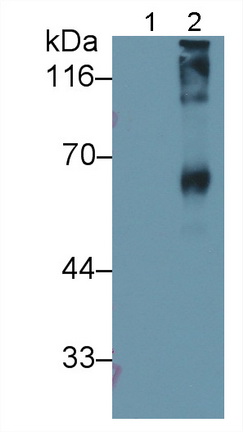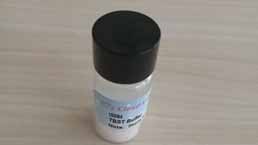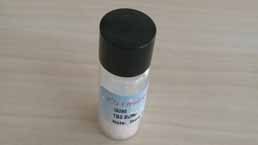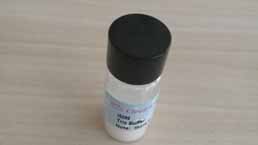Polyclonal Antibody to Sialic Acid (SA) 

Overview
Properties
- Product No.PAS099Ge01
- Organism SpeciesPan-species (General) Same name, Different species.
- ApplicationsWB
If the antibody is used in flow cytometry, please check FCM antibodies.
Research use only - DownloadInstruction Manual
- Category
- SourcePolyclonal antibody preparation, Host Rabbit
- Ig Type IgG, Potency n/a
- PurificationAntigen-specific affinity chromatography followed by Protein A affinity chromatography
- LabelNone
- Immunogen CPS099Ge21-OVA Conjugated Sialic Acid (SA)
- Buffer FormulationPBS, pH7.4, containing 0.02% NaN3, 50% glycerol.
- TraitsLiquid, Concentration 0.5mg/mL
Sign into your account
Share a new citation as an author
Upload your experimental result
Review

Contact us
Please fill in the blank.
Specifity
The antibody is a rabbit polyclonal antibody raised against SA. It has been selected for its ability to recognize SA in ELISA and CLIA.
Usage
Western blotting: 0.01-2µg/mL;
Optimal working dilutions must be determined by end user.
Storage
Store at 4°C for frequent use. Stored at -20°C in a manual defrost freezer for two year without detectable loss of activity. Avoid repeated freeze-thaw cycles.
Stability
The thermal stability is described by the loss rate. The loss rate was determined by accelerated thermal degradation test, that is, incubate the protein at 37°C for 48h, and no obvious degradation and precipitation were observed. The loss rate is less than 5% within the expiration date under appropriate storage condition.
Organism Species More: Pan-species (General)Giveaways
Increment services
Citations
- Broad Spectrum Activity of a Lectin-Like Bacterial Serine Protease Family on Human LeukocytesPubmed:25251283
- Ectopic expression of 35 kDa and knocking down of 78 kDa SG2NAs induce cytoskeletal reorganization, alter membrane sialylation, and modulate the markers of EMTPubmed: 33083950
- Sialic acid associated with oxidative stress and total antioxidant capacity (TAC) expression level as a predictive indicator in moderate to severe Alzheimer's diseasePubmed: 32991981














